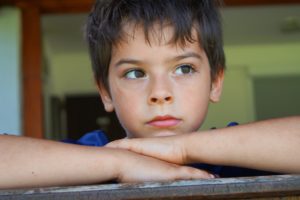 As many know by now, Sunday marked a terrible day with the worst mass shooting in U.S. history. Times such as these are hard to comprehend, and they are particularly confusing and difficult for children. When disaster or tragedy occurs, it is important for parents to talk to their kids about what happened. This gives children the chance to express their feelings and their understanding of what happened. For many parents, this can be a difficult task. There are some guidelines parents should keep in mind when talking to their child about a tragedy:
As many know by now, Sunday marked a terrible day with the worst mass shooting in U.S. history. Times such as these are hard to comprehend, and they are particularly confusing and difficult for children. When disaster or tragedy occurs, it is important for parents to talk to their kids about what happened. This gives children the chance to express their feelings and their understanding of what happened. For many parents, this can be a difficult task. There are some guidelines parents should keep in mind when talking to their child about a tragedy:
Keep your child in mind. The most important thing to keep in mind when talking to your child about a tragedy is the age and development of your child. Only you really know their child and how they may react to situations. This might determine the explanation or the amount of detail you give.
Encourage expression of feelings. It is important that children are able to express their feelings and that it is alright to be upset, sad, mad, etc. It is important not to dismiss your child’s feelings, even if you think their feelings are unnecessary.
Remain calm. Generally children look to adults in times of tragedy or disaster and may mimic or pick up on the emotions of adults around. Your child will look to you about how to react about the situation. Take time to get control over your own emotions before you talk to your child.
Limit media exposure. While teenagers may want to watch coverage of the event, constant exposure should have limits. Cover of the event should exposure should be limited especially for young children.
You don’t need to give a reason. Many times youth may ask why an event happened, and adults may feel obligated to answer. Many times there is no reason. Be careful not to blame a cultural, racial, ethnic, religious or another group.
Overall it is important for parents to talk to their child when tragedy strikes, even if the task is difficult. It is important for your child to feel that they are supported and safe, especially in a difficult time.

